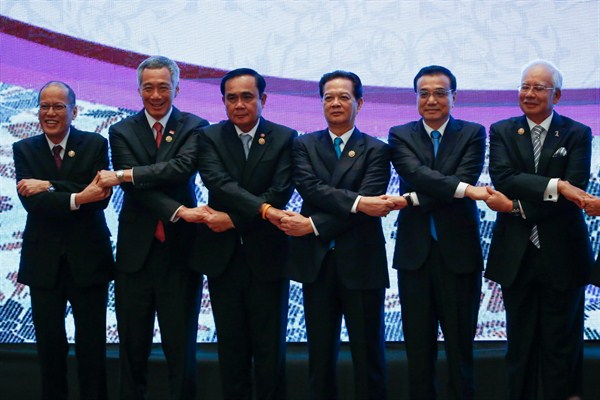In early December, China and Thailand finally signed a deal to build a multibillion-dollar railway line linking the two countries. If realized, the move has the potential to be not only a boost for bilateral ties, but also a feather in the cap of Beijing’s geopolitical ambitions in Southeast Asia.
The idea of a Sino-Thai rail project has been in the works for years, with the latest plans unveiled in December 2014 during Chinese Premier Li Keqiang’s visit to Thailand, alongside rice and rubber deals. The rail agreement comprises two routes covering more than 530 miles and costing 350 billion baht, or about $9.7 billion, with the trains running at top speeds of up to 110 miles per hour.
Though Bangkok and Beijing have had differences over funding, feasibility and even the speed of the trains, the deal’s finalization last month is no doubt a boon as the two countries celebrate the 40th anniversary of their bilateral relationship. While China is already Thailand’s biggest trading partner and export market, the new railway—in addition to the agreements that will see China buying 2 million tons of rice and 200,000 tons of rubber from Thailand—would be a further benefit for trade, investment and tourism. China’s ambassador to Thailand recently told the Thai newspaper The Nation that the rail project was the most tangible demonstration of progress in ties since he assumed his post in 2013.

